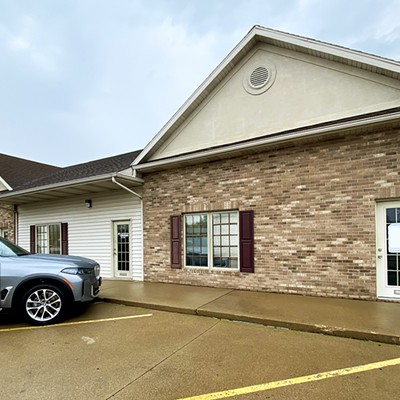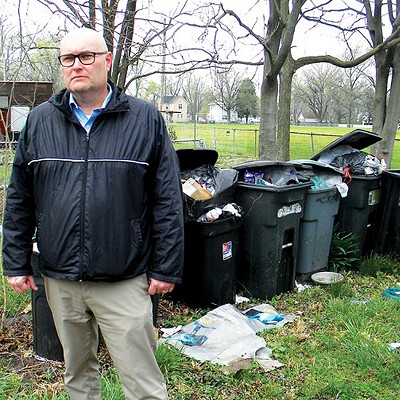The impact of divorce on children
[
{
"name": "Air - MedRect Combo - Inline Content 1",
"component": "11490391",
"insertPoint": "3",
"requiredCountToDisplay": "1",
"parentWrapperClass": "fdn-ads-inline-content-block"
},{
"name": "Air - MedRect Combo - Inline Content 2",
"component": "11490392",
"insertPoint": "7",
"requiredCountToDisplay": "5",
"parentWrapperClass": "fdn-ads-inline-content-block"
},{
"name": "Air - MedRect Combo - Inline Content 3",
"component": "11490393",
"insertPoint": "12",
"requiredCountToDisplay": "9",
"parentWrapperClass": "fdn-ads-inline-content-block"
}
]
Today one in two marriages will end in divorce, so, if you are married, you have a 50/50 chance of making it “until death do us part.” My parents were married 55 years. They had something figured out. My sister and I were not so lucky. We suffered through court battles, arguments, rage, tears, sleepless nights, anti-depressants, guilt, blame, freedom, liberation, reconciliations and final endings. Our children suffered through arguments, rage, loss, betrayal, parental conflict, tension, drama, relocation and dealing with us as we tried desperately to assure them we were “okay” and that they would be “okay.”
So what is the impact of divorce on children? Effective July 1, 2006, the Illinois State Supreme Court addressed these issues by mandating parents to complete a four-hour parenting class. “Parents forever: The impact of divorce on children” is one such class. The rule states that anyone dealing with custody or visitation issues is mandated to complete the class. This included couples who are seeking a divorce, unmarried parents who are establishing custody and visitation for the first time, or even parents who have been apart for many years and are changing custody or visitation plans. The class was implemented to promote communication between parents and to reduce parental conflict. Long-term studies show that children with parents who display minimal parental conflict have less adjustment issues, better self-esteem and generally develop into healthier, happier adults.
Children who have parents in a state of high conflict are more likely to develop anxiety, depression, and anger issues and have lower grades in school. Children may go through a grieving period in which they feel a loss of a two-parent home, loss of relationships with extended family, or a loss of friends if they have to move to a new house and attend a new school. Some children may feel they caused the divorce, especially if they have heard parents arguing about them, such as over grades or discipline issues. Because children do not have command of the English language as adults do, they cannot sit down and say, “Now I am 8 years old and these are my issues and this is what I need to work on.” So, what they do is act out with self-destructive defenses. A parent might see excessive crying, night terrors, defiance and a decline in grades, rage, insecurity and general acting out behaviors, which are intensified or newly created. Even babies may stop eating because they can sense tension in caregivers. Teenagers may become outwardly rebellious or withdrawn from the family.
Divorce and separation bring many changes and intense challenges for families. Everything is different. Holiday rituals are different. Financial circumstances change. Children must move back and forth adjusting to two different households. The rules may be different; what is allowed at one parent’s house may not be allowed at the other. Parenting styles differ, and new people are often introduced into the equation. Even the smells, the food and the way the sheets feel is different. It’s a lot to cope with and then add some parental conflict that puts children in the middle. Now you have a recipe for a depressed, anxious, angry child.
What do children need to know when parents divorce? 1. I love you and I will not leave you. 2. You can talk to me and I will listen. 3. I am okay and I will take care of you and myself. 4. You still have a family that loves you. 5. This is not your fault and you did not cause this.
Jeanne Malone is a Licensed Clinical Professional Counselor and a court-approved “Parents forever” instructor with over 23 years experience working with children and families. Her office is at Ascent Counseling, 408 S. Fifth Street in Springfield.
So what is the impact of divorce on children? Effective July 1, 2006, the Illinois State Supreme Court addressed these issues by mandating parents to complete a four-hour parenting class. “Parents forever: The impact of divorce on children” is one such class. The rule states that anyone dealing with custody or visitation issues is mandated to complete the class. This included couples who are seeking a divorce, unmarried parents who are establishing custody and visitation for the first time, or even parents who have been apart for many years and are changing custody or visitation plans. The class was implemented to promote communication between parents and to reduce parental conflict. Long-term studies show that children with parents who display minimal parental conflict have less adjustment issues, better self-esteem and generally develop into healthier, happier adults.
Children who have parents in a state of high conflict are more likely to develop anxiety, depression, and anger issues and have lower grades in school. Children may go through a grieving period in which they feel a loss of a two-parent home, loss of relationships with extended family, or a loss of friends if they have to move to a new house and attend a new school. Some children may feel they caused the divorce, especially if they have heard parents arguing about them, such as over grades or discipline issues. Because children do not have command of the English language as adults do, they cannot sit down and say, “Now I am 8 years old and these are my issues and this is what I need to work on.” So, what they do is act out with self-destructive defenses. A parent might see excessive crying, night terrors, defiance and a decline in grades, rage, insecurity and general acting out behaviors, which are intensified or newly created. Even babies may stop eating because they can sense tension in caregivers. Teenagers may become outwardly rebellious or withdrawn from the family.
Divorce and separation bring many changes and intense challenges for families. Everything is different. Holiday rituals are different. Financial circumstances change. Children must move back and forth adjusting to two different households. The rules may be different; what is allowed at one parent’s house may not be allowed at the other. Parenting styles differ, and new people are often introduced into the equation. Even the smells, the food and the way the sheets feel is different. It’s a lot to cope with and then add some parental conflict that puts children in the middle. Now you have a recipe for a depressed, anxious, angry child.
What do children need to know when parents divorce? 1. I love you and I will not leave you. 2. You can talk to me and I will listen. 3. I am okay and I will take care of you and myself. 4. You still have a family that loves you. 5. This is not your fault and you did not cause this.
Jeanne Malone is a Licensed Clinical Professional Counselor and a court-approved “Parents forever” instructor with over 23 years experience working with children and families. Her office is at Ascent Counseling, 408 S. Fifth Street in Springfield.
Illinois Times has provided readers with independent journalism for almost 50 years, from news and politics to arts and culture.
Your support will help cover the costs of editorial content published each week. Without local news organizations, we would be less informed about the issues that affect our community..
Got something to say?
Send a letter to the editor and we'll publish your feedback in print!


















